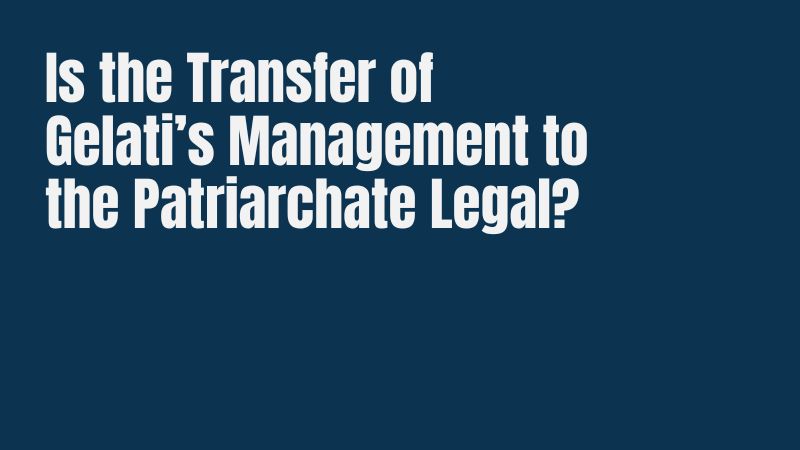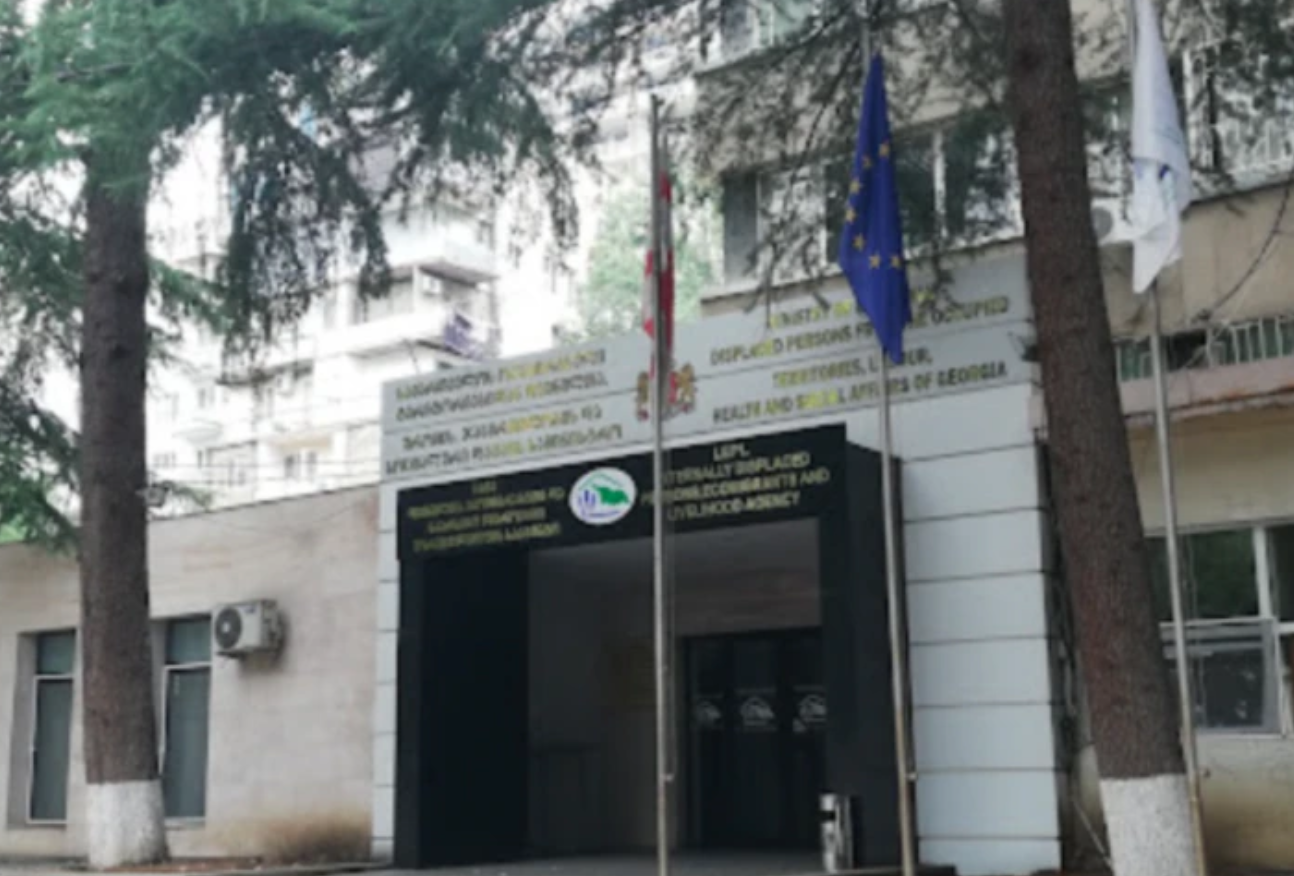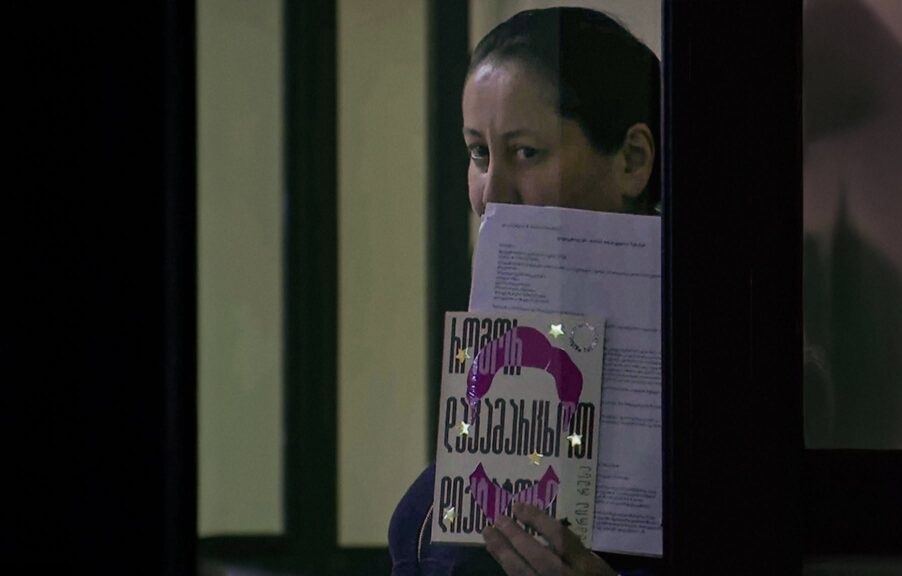The unique artistry of the Gelati Monastery complex and its current deteriorating condition remain one of the major challenges in cultural heritage preservation in recent years in Georgia. The problem has multiple layers, ranging from the lack of transparency in the processes to the incompatibility of completed work with cultural heritage protection standards, and culminating in the absence of accountability for specific responsibilities.
Given the monastery complex’s significance, the problems at Gelati have repeatedly become a matter of public interest, including through journalistic investigations. In this regard, the work performed by “iFACT” deserves attention, as it has covered numerous key issues related to Gelati and has been providing interested audiences with extensive and comprehensive coverage for years.
Beyond assessing the damage to Gelati’s artwork, the responsibility of relevant individuals, and efforts made for its preservation, there is another issue connected to Gelati that has not received proper evaluation to date. This concerns the decision made by the Ministry of Culture and Sports of Georgia (hereinafter the Ministry) in February 2023, according to which the Ministry transferred the ongoing restoration work at Gelati to the Georgian Patriarchate.
On February 14, 2023, the Patriarchate’s Public Relations Service issued a statement regarding Gelati, which concluded with the following:
“The situation is not just severe, but critical! The circumstances need to be corrected urgently and the artwork must be saved! We believe that the current group should be replaced with specialists of higher competence.”
Ten days after the Patriarchate’s aforementioned statement, at a meeting held at the Georgian National Museum, led by then-Minister of Culture and Sports Tea Tsulukiani, it was announced that the restoration work at Gelati would be managed by the Patriarchate instead of the Ministry.
According to media reports, this initiative belonged to Tea Tsulukiani, who noted at the meeting:
“We have agreed that the Georgian Patriarchate shares my initiative that the process of addressing problems, conservation, and restoration when the time comes, both regarding wall paintings and roofing at the Gelati Monastery complex, will be fully led by the Georgian Patriarchate, and the Ministry will no longer be the leading entity in this process.”
This is where the main question arises: how compliant with the law is then-Minister of Culture and Sports Tea Tsulukiani’s decision to transfer the management of Gelati’s restoration work from the Ministry to the Patriarchate? Did the Ministry even have such authority? Or is there any legal act or document regulating this matter?
According to the Constitution of Georgia, the state is responsible for protecting cultural heritage. Under the Law of Georgia on Cultural Heritage, the Ministry of Culture and Sports is the main state body responsible for cultural heritage protection. The same law defines an extensive list of the Ministry’s authorities in the field of cultural heritage.
Concurrently, legislation stipulates that the Minister of Culture is authorized to delegate the Ministry’s power to issue individual legal acts regarding cultural heritage to its territorial body or structural unit, and through an administrative agreement, can delegate authority to another administrative body.
Presumably, the document that resulted in the Ministry of Culture’s transfer of authority over Gelati to the Patriarchate should be the minutes of the meeting held on February 24, 2023. In any case, this is the only document mentioned in the Catholicos-Patriarch of All Georgia’s Order #24 of March 22, 2023, regarding the creation of a temporary committee for Gelati’s rehabilitation.
Even if we assume that the minutes of the meeting held at the Ministry on February 24, 2023, is a legally binding document, this does not resolve the problem. The Law of Georgia on Cultural Heritage nowhere indicates that the Ministry can transfer its authority to the Georgian Apostolic Autocephalous Orthodox Church.
Consequently, the Ministry of Culture’s decision to replace itself with the Patriarchate in addressing problems at the Gelati Monastery complex lacks legal foundation and is an illegal decision. Unfortunately, this decision by the Ministry appears more like an attempt to avoid responsibility rather than a genuine effort to resolve the problem.







